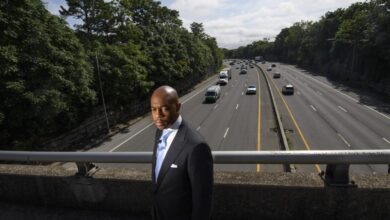Here’s what reparations could mean for those in Shelby County

“More than anything I want us to be able to quantify the disinvestment and the oppression so that we can shift the mentality,” commissioner Britney Thornton said.
MEMPHIS, Tenn. —
Shelby County, Tennessee’s largest county, will study reparations for descendants of enslaved people.
A resolution passed the Shelby County Commission Wednesday. The resolution funds $5 million study “to establish, develop and implement reparations.”
“It is a holistic approach to be able to start a conversation about what does, you know, retribution look like to our local Black community,” District 10 county commissioner Britney Thornton said.
That’s the goal of the resolution passed to study reparations by the Shelby County Commission Wednesday.
The resolution allocates $5 million dollars to find “actionable items” addressing five key areas:
- Access to Affordable Housing & Homeownership
- Healthcare
- Criminal Justice Reform,
- Enhanced Career Opportunities
- Financial Literacy & Generational Wealth
Ernest Strickland, the president of the Black Business Association of Memphis said generational wealth is key.
“Jim Crow was public policy,” Ernest Strickland said. “If public policy was a part of the problem that has produced this enormous gap in wealth, then public policy has to play a role in narrowing that wealth gap.”
Evanston, IL, a suburb of Chicago, was the first U.S. city to implement reparations and is a model for Shelby County’s study. There, tax money from the sale of recreational marijuana is used to fund the program.
In the city with a population of about 77,000, descendants of Black people who lived in Evanston between 1919 and 1969 and who suffered housing discrimination each qualify for $25,000.
This money is to be used for any current home repairs or down payments on property and though here in Memphis, the commission doesn’t intend to disperse cash payments Strickland says there are other ways to make up the difference.
“Assets in general are a main driver of wealth creation,” Strickland said.
With more than 40,000 Black-owned businesses in Memphis and access to capital being a primary roadblock, Strickland says breaking down the barriers to business capital should be a focus of the commission.
“It doesn’t do anyone any good if there’s a hole in my side of our boat,” Strickland said. “We’re in the same boat together, so let’s fix the hole so that the boat can float, and we all can get to the destination of prosperity.”
























































